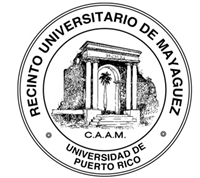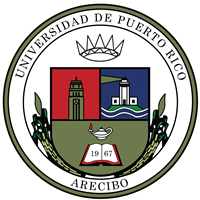What do they do?
Investigate the growth, structure, development, and other characteristics of microscopic organisms, such as bacteria, algae, or fungi. Includes medical microbiologists who study the relationship between organisms and disease or the effects of antibiotics on microorganisms.
Also known as:
Bacteriologist, Clinical Laboratory Scientist, Clinical Microbiologist, Microbiological Analyst, Microbiologist, Public Health Microbiologist, Quality Control Microbiologist (QC Microbiologist)
-
4.1%
Change
Ranks #36 in job growth rate50Job Openings
Ranks #17 in net job growth
-
University of Puerto Rico-Mayaguez
Mayaguez, PR
-
University of California-Santa Barbara
Santa Barbara, CA
-
University of California-Los Angeles
Los Angeles, CA
-
University of Puerto Rico-Arecibo
Arecibo, PR
-
University of Massachusetts-Amherst
Amherst, MA
Looking for colleges that offer a specific major? Use the College Match Tool to find your best-matched schools and discover your estimated Net Price!
- Doctorate or Professional Degree (22%)
- Master's degree (32%)
- Bachelor's degree (45%)
- Associate's degree (<1%)
- Some college, no degree (<1%)
- High school diploma equivalent (<1%)
- Less than high school diploma (<1%)
Most Popular Majors that prepare Microbiologists
-
#1
-
Degrees Granted
2,881
-
Female Students
1,817
-
Male Students
1,064
-
Median Starting Salary
$44,600
-
-
#2
-
Degrees Granted
405
-
Female Students
260
-
Male Students
145
-
Median Starting Salary
$44,600
-
-
#3
-
Degrees Granted
349
-
Female Students
236
-
Male Students
113
-
Median Starting Salary
$42,090
-
-
#4
-
Degrees Granted
223
-
Female Students
139
-
Male Students
84
-
Median Starting Salary
$44,600
-
-
#5
-
Degrees Granted
199
-
Female Students
109
-
Male Students
90
-
Median Starting Salary
$44,600
-
People in this career often have these skills:
- Science - Using scientific rules and methods to solve problems.
- Reading Comprehension - Understanding written sentences and paragraphs in work-related documents.
- Writing - Communicating effectively in writing as appropriate for the needs of the audience.
- Active Listening - Giving full attention to what other people are saying, taking time to understand the points being made, asking questions as appropriate, and not interrupting at inappropriate times.
- Critical Thinking - Using logic and reasoning to identify the strengths and weaknesses of alternative solutions, conclusions, or approaches to problems.
- Speaking - Talking to others to convey information effectively.
- Active Learning - Understanding the implications of new information for both current and future problem-solving and decision-making.
- Monitoring - Monitoring/Assessing performance of yourself, other individuals, or organizations to make improvements or take corrective action.
- Judgment and Decision Making - Considering the relative costs and benefits of potential actions to choose the most appropriate one.
- Learning Strategies - Selecting and using training/instructional methods and procedures appropriate for the situation when learning or teaching new things.
- Complex Problem Solving - Identifying complex problems and reviewing related information to develop and evaluate options and implement solutions.
People in this career often know a lot about:
- Biology - Knowledge of plant and animal organisms, their tissues, cells, functions, interdependencies, and interactions with each other and the environment.
- English Language - Knowledge of the structure and content of the English language including the meaning and spelling of words, rules of composition, and grammar.
- Chemistry - Knowledge of the chemical composition, structure, and properties of substances and of the chemical processes and transformations that they undergo. This includes uses of chemicals and their interactions, danger signs, production techniques, and disposal methods.
- Mathematics - Knowledge of arithmetic, algebra, geometry, calculus, statistics, and their applications.
People in this career often have talent in:
- Written Comprehension - The ability to read and understand information and ideas presented in writing.
- Inductive Reasoning - The ability to combine pieces of information to form general rules or conclusions (includes finding a relationship among seemingly unrelated events).
- Written Expression - The ability to communicate information and ideas in writing so others will understand.
- Oral Comprehension - The ability to listen to and understand information and ideas presented through spoken words and sentences.
- Oral Expression - The ability to communicate information and ideas in speaking so others will understand.
- Problem Sensitivity - The ability to tell when something is wrong or is likely to go wrong. It does not involve solving the problem, only recognizing that there is a problem.
- Deductive Reasoning - The ability to apply general rules to specific problems to produce answers that make sense.
- Information Ordering - The ability to arrange things or actions in a certain order or pattern according to a specific rule or set of rules (e.g., patterns of numbers, letters, words, pictures, mathematical operations).
- Category Flexibility - The ability to generate or use different sets of rules for combining or grouping things in different ways.
- Fluency of Ideas - The ability to come up with a number of ideas about a topic (the number of ideas is important, not their quality, correctness, or creativity).
- Flexibility of Closure - The ability to identify or detect a known pattern (a figure, object, word, or sound) that is hidden in other distracting material.
- Near Vision - The ability to see details at close range (within a few feet of the observer).
- Selective Attention - The ability to concentrate on a task over a period of time without being distracted.
- Speech Recognition - The ability to identify and understand the speech of another person.
People in this career often do these activities:
- Cultivate micro-organisms for study, testing, or medical preparations.
- Prepare biological samples for testing or analysis.
- Research microbiological or chemical processes or structures.
- Classify organisms based on their characteristics or behavior.
- Analyze biological samples.
- Research diseases or parasites.
- Prepare scientific or technical reports or presentations.
- Supervise scientific or technical personnel.
- Monitor environmental impacts of production or development activities.
- Inspect condition of natural environments.
- Operate laboratory or field equipment.
- Develop new or advanced products or production methods.
- Examine characteristics or behavior of living organisms.
- Analyze chemical compounds or substances.
This page includes data from:

 Occupation statistics: USDOL U.S. Bureau of Labor Statistics Occupational Employment Statistics
Occupation statistics: USDOL U.S. Bureau of Labor Statistics Occupational Employment Statistics









